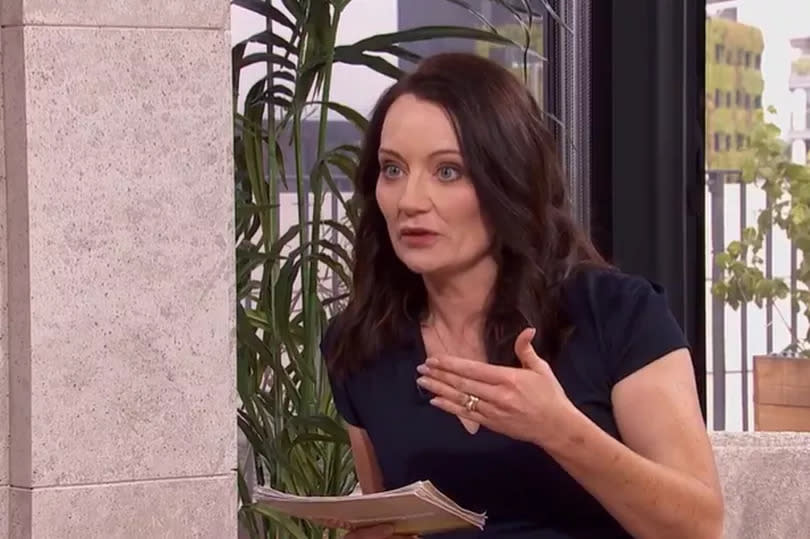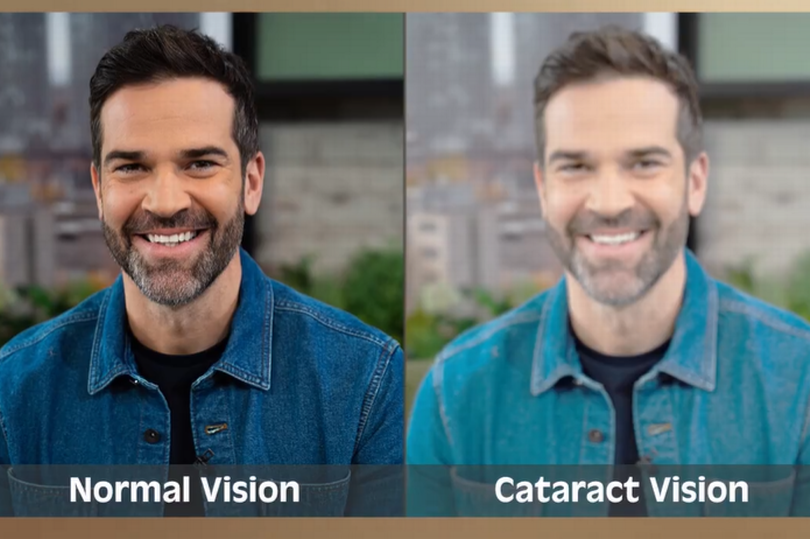BBC doctor had smudge on her sunglasses and was shocked to find out what it was

A BBC doctor was on holiday when she saw a smudge on her sunglasses. Dr Helen Wall assumed it was sunscreen but she later “shocked” to discover it was a common condition affecting her eyesight.
She has now warned people not to ignore symptoms of cataracts. Talking on BBC Morning Live, where she is a resident GP, Dr Wall shared her experience of living with the eye condition.
She explained: “Cataracts is basically a clouding of the lens in the eye which is a small, transparent disc - or at least it should be transparent. What happens with cataracts is that over time, it can become cloudy or misty,” reports TessideLive.
READ MORE: Health warning issued with blast of tropical-like heat on the way
Dr Wall continued: “When we are young, our lens is like looking through a clear window. But when you start to get cataracts, that (vision) can become very misty, more like a bathroom window. It can be quite difficult for people because it can affect things like driving, and doing their normal day-to day activities as it progresses, so it is something to be aware of.”
The doctor stressed that there are “clear driving regulations” people need to adhere to on the DVLA website. She said: “People with cataracts can drive. But they need to be clear about how severe their cataracts and how much it affects them.”
Talking about her own diagnosis, she recalled: “I was told that I’ve got cataracts because I’m very short sighted and my prescription is minus 11 - which is quite significant.” Join the North Wales Live WhatsApp community group where you can get the latest stories delivered straight to your phone
When asked what her experience is like with the condition, she said: “I’ve had poor vision most of my life. I remember being in primary school and struggling to see very clearly and through time it’s got worse and worse.”

Whilst her vision can be corrected with contact or glasses, Dr Wall recalled that around 18 months ago, things changed. She said: “I started to feel like things were misting up.
“When I was on holiday, I was taking my sunglasses off and kept wiping them thinking, ‘things are just not as clear as they should be, there’s sunscreen on these’. Actually it was my vision deteriorating.”
She added: “When I got to the optician for my regular review, I was quite shocked to be told that I had early cataracts. I consider myself very young, I was shocked at that, even as a GP because it’s not something you think about. You think about it in old people.” Sign up for the North Wales Live newsletter sent twice daily to your inbox
Do I need to tell the DVLA if I have cataracts?
According to the official DVLA website: “You need to tell DVLA about some medical conditions as they can affect your driving”. If you don’t do this, the agency warn you can be fined up to £1,000 if you don’t tell them that your medical condition affects your driving.
You can check with the DVLA's online tool if a health condition affects your driving. The service is also available in Welsh (Cymraeg). There is a different way to report your health condition if you live in Northern Ireland.
Find out what's going on near you

 Yahoo News
Yahoo News 
